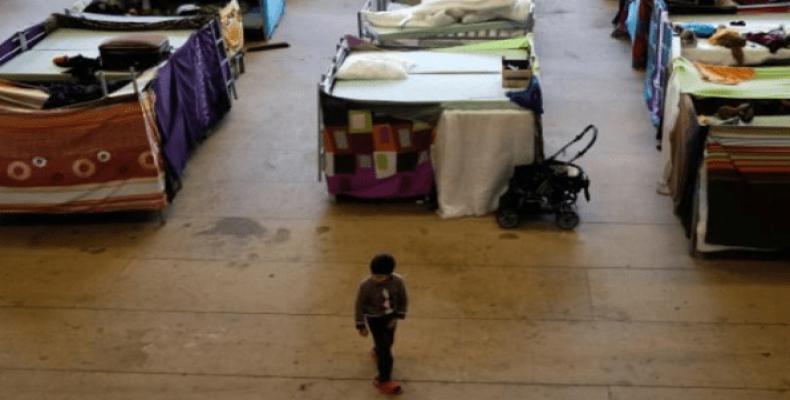Berlin, March 5 (RHC)-- A German food bank is enforcing a temporary stop on accepting new non-German clients, claiming that immigrants and asylum seekers are displacing local people in need. "We want the German granny to be able to keep coming to us," said Joerg Sartor, chairman of the charitable group Tafel Deutschland, which serves free meals to the poor in the western city of Essen.
Elderly Germans and single mothers have been gradually displaced over the past two years as the share of immigrants receiving free meals has risen to three out of four, Sartor says. Tafel Deutschland announced the change in December and implemented it mid-January, but it was only widely reported last month, initially by the newspaper Westdeutsche Allgemeine Zeitung (WAZ).
The group, like hundreds of similar charities nationwide, collects surplus food that would otherwise be discarded by supermarkets and other businesses in order to prepare and serve it to the poor. Typically, people have to register to qualify for regular free meals by proving that they are recipients of unemployment or other social benefits.
Sartor told the WAZ daily that his charity would maintain the additional demand that new clients show German identity papers in order to register "until the balance is restored." More than a million migrants have flooded into Germany since 2015, when German Chancellor Angela Merkel opened borders to refugees, but the numbers have been dwindling.
In 2016, some 280,000 migrants arrived in Germany, a sharp drop compared with the 890,000 who arrived in 2015. Germany processed just over 408,000 applications for asylum in the first half of 2017, rejecting almost 40 percent, according to the official estimate.
The number of foreigners who qualify to join loved ones granted asylum in Germany is much smaller than government estimates, according to a recent study by the Institute for Employment Research (IAB).
Researchers found in October that by the end of 2017, between 150,000 and 180,000 spouses and children of individuals granted either full refugee status or subsidiary protection would qualify to come to Germany.
This is far lower than an estimate by Interior Minister Thomas de Maiziere, who has said that for every refugee, one person living abroad is entitled to come to Germany.


